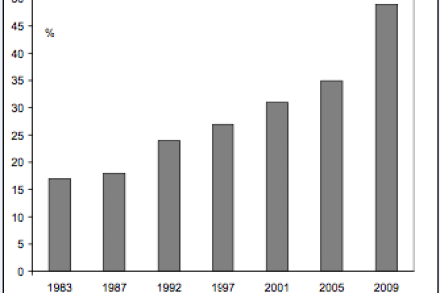Predicting election results is a fool’s errand
Why is predicting this election so difficult? Because voters themselves don’t know what to do. Before each of the last seven elections, Ipsos/Mori ask voters if they might change their minds. In 1983 and 1987, about one in seven said yes. This time, almost half of the British electorate may change their minds. This explains why 2010 has been the most volatile election in recent memory – with all thee parties having been ahead, in some way, during the campaign. And it also explains why prediction is a fool’s game. My gut still tells me ‘small Tory majority’ but I have learned never to bet on my gut. The press











